
Journal of Forensic and Legal Medicine
Scope & Guideline
Elevating Standards in Forensic and Legal Scholarship.
Introduction
Aims and Scopes
- Forensic Toxicology:
The journal publishes studies on the analysis of toxic substances in biological specimens, including research on drug-related fatalities, methodologies for toxicological assessments, and novel findings in forensic toxicology. - Forensic Pathology:
Research related to the autopsy process, causes of death, and post-mortem examinations is a core area. This includes case studies, reviews, and advancements in techniques aiding the determination of cause and manner of death. - Sexual Assault and Violence:
A significant focus on the medical and legal aspects of sexual violence, including the collection of evidence, victim support, and legal implications. Studies often address demographic factors, reporting behaviors, and outcomes for victims. - Medical-Legal Issues:
The journal explores various medical-legal issues, such as malpractice, legal responsibilities of healthcare providers, and ethical dilemmas in forensic practice, providing a multidisciplinary perspective. - Technological Advances in Forensics:
Research on the application of new technologies, such as 3D imaging, machine learning, and molecular techniques in forensic science, which enhances the accuracy and efficiency of forensic investigations. - Public Health and Forensic Medicine:
Papers often address the public health implications of forensic findings, including trends in violence, substance abuse, and the impact of socio-economic factors on forensic cases.
Trending and Emerging
- Machine Learning and AI in Forensics:
Recent publications highlight the increasing use of machine learning and artificial intelligence in forensic investigations, such as age prediction and pattern recognition, showcasing the potential for enhanced analytical capabilities. - Mental Health in Forensic Settings:
There is a growing body of research exploring the intersection of mental health and forensic medicine, particularly regarding the implications of mental health conditions in legal contexts and their impact on victimization and perpetration. - Biomarkers and Molecular Techniques:
Research on the use of biomarkers and advanced molecular techniques for post-mortem interval estimation and cause of death determination is gaining traction, reflecting a shift towards more precise scientific approaches in forensic investigations. - Public Health Responses to Forensic Findings:
Emerging studies focus on the implications of forensic findings for public health, particularly in understanding and addressing violence, substance abuse, and the health consequences of forensic cases. - Ethical and Legal Challenges in Forensic Practice:
An increase in discussions around ethical dilemmas and legal challenges faced by forensic practitioners, especially in light of evolving societal norms and legal frameworks, is becoming more pronounced in recent publications.
Declining or Waning
- Traditional Forensic Anthropology:
There has been a noticeable decrease in studies focused solely on traditional forensic anthropology methods, possibly due to the increasing integration of advanced imaging techniques that provide more efficient and less invasive means of analysis. - Historical Forensic Cases:
Research centered on historical case studies, while still relevant, appears to be less frequent as the journal shifts towards contemporary issues and emerging methodologies in forensic science. - Basic Forensic Identification Techniques:
Basic forensic identification techniques, such as fingerprint analysis and simple odontology, seem to be declining in favor of more sophisticated methods involving DNA analysis and digital technologies. - Case Reports without Novel Insights:
There is a decreasing trend in the publication of case reports that do not provide new insights or methodologies, as the journal focuses more on impactful research that advances the field.
Similar Journals

Egyptian Journal of Forensic Sciences
Catalyzing dialogue in forensic science and legal practices.The Egyptian Journal of Forensic Sciences, published by the International Association of Law & Forensic Sciences, stands as a premier platform for scholarly communication in the fields of forensic science, law, and health-related social sciences. With an ISSN of 2090-536X and an E-ISSN of 2090-5939, this open-access journal, established in 2011, has garnered a reputation for its rigorous peer-review process and substantive contributions to the field. Housed in Switzerland, it boasts impressive metrics, achieving a Q2 ranking in Health (social science) and a stellar Q1 in Law, in addition to being recognized in Pathology and Forensic Medicine. With its articles accessible to a global audience, the journal encourages the exchange of innovative ideas and practices among researchers, professionals, and students who are dedicated to advancing the disciplines of forensic science and legal studies. As of 2023, it ranks in the 75th percentile in Social Sciences - Law and continues to influence both academic discourse and practical applications in the forensic domain.
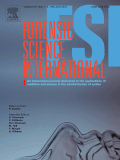
Forensic Science International
Advancing Forensic Knowledge for a Safer TomorrowForensic Science International is a premier journal published by Elsevier Ireland Ltd, dedicated to advancing the field of forensic science through interdisciplinary research and scholarship. Since its inception in 1978, this esteemed journal has provided a platform for vital research, receiving recognition in the Q1 category for both Law and Pathology and Forensic Medicine as of 2023, underscoring its significant impact in these domains. It currently ranks 54th out of 1025 journals in Social Sciences - Law and 51st out of 208 in Medicine - Pathology and Forensic Medicine, placing it in the top echelons of academic journals according to Scopus metrics. Forensic Science International transitioned to Open Access in 2019, ensuring that critical findings are widely available to the global research community and enhancing collaboration among forensic professionals. With a forward-looking scope that evolves to meet the challenges and innovations of forensic science, this journal remains a pivotal resource for researchers, practitioners, and students who are committed to the continued advancement of forensic science and its applications in legal contexts.

International Journal of Electronic Security and Digital Forensics
Illuminating the path to robust electronic security practices.The International Journal of Electronic Security and Digital Forensics, published by INDERSCIENCE ENTERPRISES LTD, is a leading platform for disseminating scholarly research in the realms of cybersecurity, digital forensics, and electronic security. Established with the objective of bridging the gap between theoretical advancements and practical applications, the journal spans critical areas such as network security, legal implications of digital forensics, and reliability in safety measures. With its ISSN 1751-911X and E-ISSN 1751-9128, the journal aims to provide valuable insights into emerging technologies and methodologies while maintaining high academic standards, as reflected in its diverse quartile rankings across multiple categories in 2023. Operating from the United Kingdom and catering to a global audience, the journal is committed to fostering innovative research that contributes to safer digital environments. Researchers, professionals, and students will find a wealth of information and opportunities for collaboration in this specialized field, making International Journal of Electronic Security and Digital Forensics an essential resource for advancing knowledge and practice.
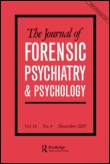
JOURNAL OF FORENSIC PSYCHIATRY & PSYCHOLOGY
Fostering Dialogue Between Psyche and Legal PracticeJOURNAL OF FORENSIC PSYCHIATRY & PSYCHOLOGY, published by Routledge Journals, Taylor & Francis Ltd, is a pivotal platform for advancing knowledge at the intersection of psychology, psychiatry, and the legal system. With an ISSN of 1478-9949, this esteemed journal has been providing a critical forum since its inception in 2003, continuing through to 2024, to foster interdisciplinary dialogue among researchers, clinicians, and legal professionals. The journal holds a Q3 category ranking in both Clinical Psychology and Psychiatry and Mental Health, reflecting its important contributions to the field. With a focus on empirical research, theoretical perspectives, and case studies, it aims to enhance the understanding of forensic issues while ensuring ethical considerations in psychological assessments and interventions. Although it currently does not provide open access, the journal's rigorous peer-review process assures high-quality publications. Researchers looking to stay at the forefront of forensic psychology will find this publication indispensable for their scholarly work and practical applications.

Scandinavian Journal of Forensic Science
Unveiling the science behind crime—one study at a time.The Scandinavian Journal of Forensic Science is a premier open-access journal published by SCIENDO since 2012, dedicated to advancing the field of forensic science. With its ISSN 2353-0707, this journal provides a platform for researchers, professionals, and students to disseminate their findings on various aspects of forensic investigations, including but not limited to forensic biology, chemistry, toxicology, and crime scene analysis. The journal plays a vital role in promoting collaboration and knowledge exchange among forensic practitioners and academics, ensuring that cutting-edge research is accessible to all. As a part of the reputable SCIENDO publishing group, the Scandinavian Journal of Forensic Science upholds high standards of peer review and editorial rigor, making it an essential resource for those involved in the forensic science community. Readers can benefit from its open-access model, which fosters wide dissemination and enhances the visibility of published works, ultimately contributing to the societal impact of forensic research.

Forensic Imaging
Fostering breakthroughs in forensic evidence analysis and application.Forensic Imaging is a premier international journal dedicated to advancing the field of forensic science through the analysis and implementation of imaging techniques. Published by ELSEVIER, this open access journal provides a platform for researchers, professionals, and students to disseminate innovative studies that bridge the disciplines of Pathology, Forensic Medicine, and Radiology. Since its inception in 2020, it has gained recognition and holds a respectable Q3 ranking in its categories for both Pathology and Forensic Medicine and Radiology, Nuclear Medicine and Imaging, reflecting its commitment to high-quality, impactful research. The journal's practical focus on imaging methodologies offers valuable insights into forensic investigations and enhances professional practices, making it an essential read for those involved in forensic research and application. Available in both print and online formats, Forensic Imaging serves as a vital resource for fostering breakthroughs in the analysis of forensic evidence.
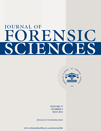
JOURNAL OF FORENSIC SCIENCES
JOURNAL OF FORENSIC SCIENCES is a premier publication dedicated to advancing the field of forensic science through high-quality research and innovation. Published by Wiley, this journal has been a reliable source of cutting-edge findings since its inception in 1961, with a continued commitment to excellence expected through 2024. With an ISSN of 0022-1198 and an E-ISSN of 1556-4029, the journal covers critical aspects of forensic medicine, including genetics, pathology, and molecular biology. Notably, it holds a Q2 ranking in Pathology and Forensic Medicine, reflecting its high impact and relevance in the field. Researchers and professionals benefit from comprehensive access to groundbreaking studies and discussions that drive advancements in forensic methodologies and technologies. While not an open access journal, its impact factor and rigorous peer-review process ensure that every article contributes significantly to the body of forensic science knowledge. Whether you are a seasoned forensic expert or an aspiring student, the JOURNAL OF FORENSIC SCIENCES serves as an essential resource for cutting-edge research and discoveries.

INTERNATIONAL JOURNAL OF LEGAL MEDICINE
Advancing the Intersection of Law and MedicineINTERNATIONAL JOURNAL OF LEGAL MEDICINE, published by SPRINGER, stands at the forefront of research in the fields of legal medicine, pathology, and forensic science. With an ISSN of 0937-9827 and an E-ISSN of 1437-1596, this esteemed journal has successfully maintained its reputation as a leading publication since its inception in 1990, providing a platform for the dissemination of cutting-edge research and case studies. The journal is recognized as a Q1 category publication in the 2023 Pathology and Forensic Medicine quartiles, ranking #44 out of 208 in its category on Scopus, reflecting its significant contribution to the academic community—demonstrated by its impressive 79th percentile. While the journal operates under a traditional subscription model, it is committed to enhancing access to critical insights in legal medicine. The INTERNATIONAL JOURNAL OF LEGAL MEDICINE invites researchers, professionals, and students to explore its manuscripts that shed light on the intersection of law and medicine, thus pushing the boundaries of what is known in these vital fields.
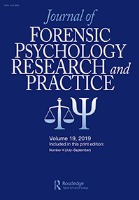
Journal of Forensic Psychology Research and Practice
Connecting Empirical Research with Practical Solutions.Journal of Forensic Psychology Research and Practice is a distinguished publication within the fields of Applied Psychology and Pathology and Forensic Medicine, published by Routledge Journals, Taylor & Francis Ltd. With a commitment to advancing knowledge from 2017 to 2024, this journal aims to bridge theory and practice by showcasing empirical research, including case studies and innovative methodologies, that address the complexities of forensic psychology in contemporary settings. While it holds a respectable Q3 ranking in both Applied Psychology and Pathology and Forensic Medicine, making it a vital resource for scholars and practitioners alike, its insights contribute significantly to understanding the psychological aspects of criminal behavior and legal processes. Researchers, professionals, and students are encouraged to engage with its content to further their understanding and application of forensic psychology principles in real-world scenarios.
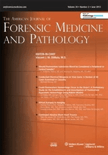
AMERICAN JOURNAL OF FORENSIC MEDICINE AND PATHOLOGY
Advancing the Science of JusticeThe American Journal of Forensic Medicine and Pathology is a pivotal publication within the field of forensic science and pathology, dedicated to disseminating influential research and advancements in the evaluation of death and injury in legal contexts. Published by Lippincott Williams & Wilkins, this journal, which has been in circulation since 1980, serves as a vital resource for professionals, researchers, and students focused on intersecting disciplines such as medicine and forensic investigations. While it holds a respectable Q3 ranking in both the Medicine (Miscellaneous) and Pathology and Forensic Medicine categories as of 2023, the journal's impact is underscored by its contributions to the ongoing dialogue on forensic practices and methodologies. The American Journal of Forensic Medicine and Pathology provides a platform for innovative papers that shape the future of forensic science, also offering insights through case studies, reviews, and research articles that cater to its diverse readership. With an ISSN of 0195-7910 and E-ISSN 1533-404X, the journal continues to support the scholarly community in advancing knowledge within this critical field.